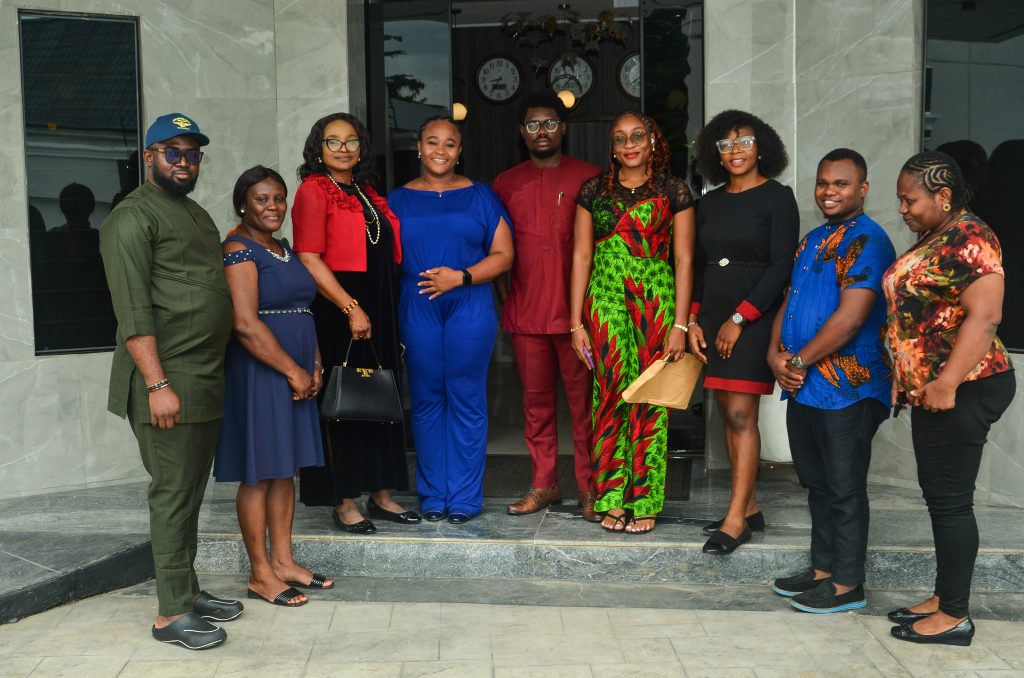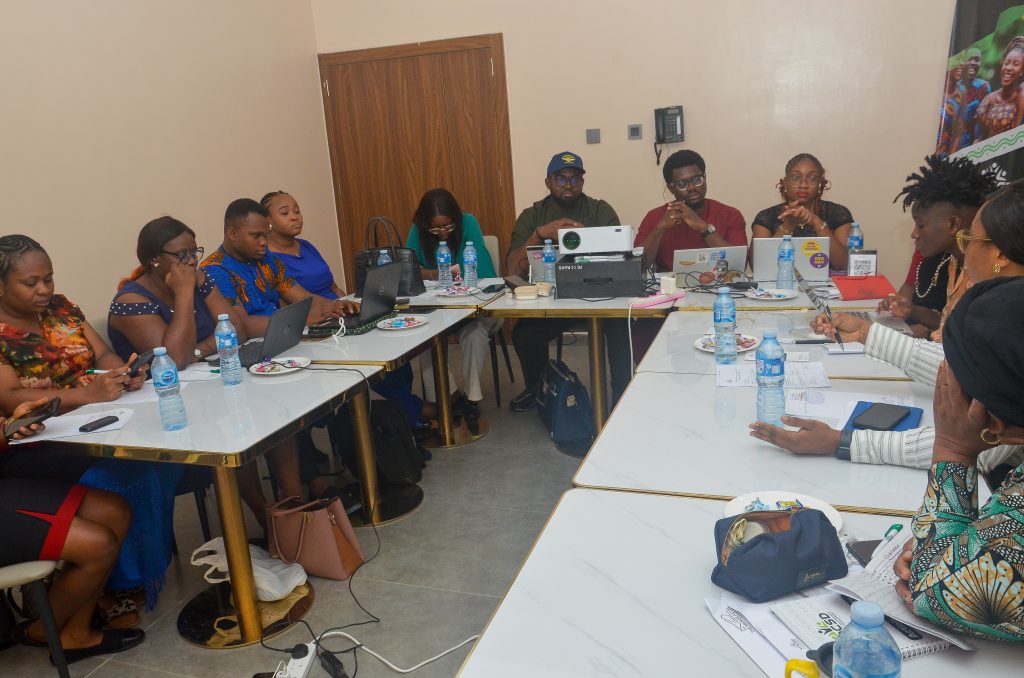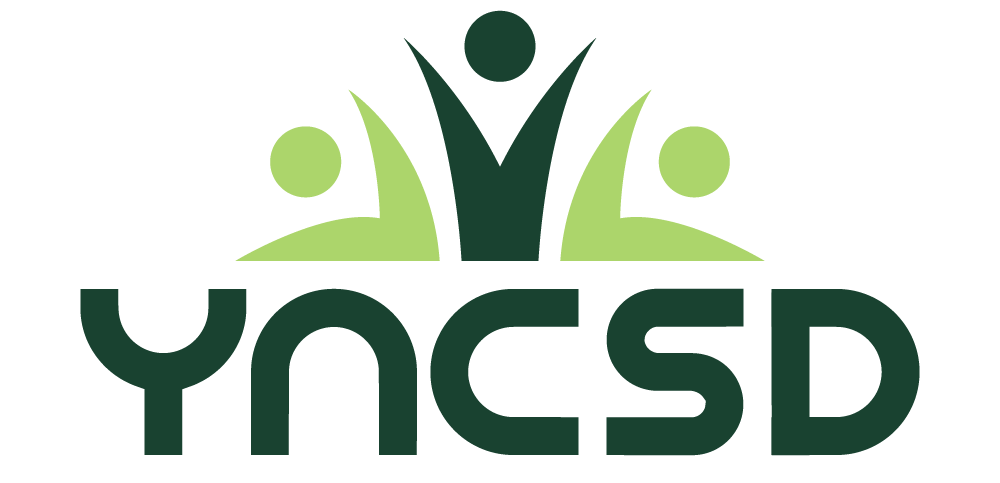Who we are
We are a youth-led organisation igniting positive change across Africa. We envision a thriving continent where empowered young people, at the forefront of action, drive a more just and sustainable future. Through in-depth research, powerful advocacy, and innovative communication, we champion the rights of all who face marginalisation and exclusion. We amplify the voices of young Africans and equip them with the knowledge and tools to create positive change. We believe young Africans hold the power to shape a more just and equitable future for all.

Our Vision
We envision thriving societies across Africa where young people stand empowered as architects of a just and equitable future, driving progress towards a continent free from gender inequality, upholding the fundamental rights of all, and ensuring sexual and reproductive health and well-being for every individual.

Our Mission
To ignite the power within young people across Africa, through advocacy, research, and communications, equipping them with the knowledge, skills, and resources to champion sexual and reproductive health rights, dismantle gender inequality, and co-create a thriving and equitable future for all.
Our Approach
Robust Advocacy
Through strategic engagement, evidence-based research, and grassroots mobilisation, we amplify voices and influence policies that protect and advance sexual and reproductive health rights for women and girls.
Communication and Media Engagement
We actively engage media platforms to amplify our advocacy efforts, ensuring that critical issues like sexual and reproductive health rights, FGM, early and forced marriages, and safe abortion access remain in the public discourse.
Youth Engagements/Partnerships
We collaborate with youth-led organisations and changemakers to amplify their voices and equip them with the tools to advocate for sexual and reproductive health rights, ending harmful practices like FGM and early and forced marriages, and ensuring access to safe abortion.
Capacity Building & Youth Leadership
Our capacity-building programs provide training, mentorship, and opportunities for youth to engage meaningfully.. They are safe spaces for learning, collaboration, and leadership development for young advocates.
Policy Negotiation
By fostering dialogue, building alliances, and presenting compelling data, we work to influence laws that uphold sexual and reproductive health rights (SRHR), eliminate harmful traditions like FGM and early and forced marriages, and secure access to safe abortion.
Our Team
Okolo Ekene Peter
Technical Delivery and Impact Lead
Sophia Onwuamah
Programme Associate
Queenet Ukachukwu
Head of Programmes and Operations
Marvellous Obot
Communications & Advocacy Officer
Board Members
Asenath Mwithigah
Board Member
Asenath Mwithigah is a visionary leader with deep expertise in gender equity, systems change, and feminist approaches to ending harmful practices. As the former CEO of Orchid Project and 28 Too Many, she provided strategic leadership to two globally recognized organizations at the forefront of the movement to end Female Genital Mutilation/Cutting (FGM/C). Under her guidance, both organizations underwent transformative growth, strengthening their roles as knowledge leaders and advocates for survivor- and community-led solutions.
Asenath also led the successful merger of Orchid Project and 28 Too Many, unifying systems, teams, and strategies to create a stronger, more impactful organization. Her commitment to feminist principles was further demonstrated through the establishment of regional offices in Kenya and Germany, ensuring deeper partnerships with African and European stakeholders and a localized approach to operations.
As a board member, Asenath brings strategic insight, a passion for equity, and a proven ability to foster collaboration—strengthening governance, innovation, and sustainable impact in the pursuit of gender justice.
Raymond Ukwa
Board Member
Chima Raymond Ukwa is a transformative leader in sustainable development and gender equity, with a distinguished track record of combating harmful traditional practices and violence against women and girls in Nigeria and globally. His career demonstrates an unwavering commitment to systemic change through policy advocacy, grassroots mobilization, and institutional strengthening.
In Nigeria, Ukwa has driven significant policy reforms through strategic roles including Programs Manager at Vicar Hope Foundation, GBV Response Lead for Abia State, and Community Engagement Manager at YNCSD. His advocacy was instrumental in domesticating the Violence Against Persons Prohibition (VAPP) Law, enacting the Female Inheritance Law, and developing Standard Operating Procedures for GBV response in Abia State. His expertise has informed national policy dialogues, including addressing Nigerian First Ladies on GBV intervention strategies and leading the development of Abia State’s Gender Policy.
As a board member, Ukwa brings strategic vision, policy expertise, and a proven ability to translate advocacy into concrete institutional change. His leadership is characterized by a commitment to feminist principles, youth empowerment, and sustainable development solutions that center marginalized voices.
Olachi Ojimadu
Board Member
Olachi Ojimadu is a results-driven development professional and strategic leader with extensive experience managing complex, multi-sectoral programs across Sub-Saharan Africa. As an accomplished Programme and Portfolio Manager, she brings six years of demonstrated expertise in gender equity, sexual and reproductive health rights (SRHR), and social norm change initiatives to governance roles.
Her technical proficiency spans the full project lifecycle—from design to implementation—with particular strengths in business process optimization, grant management, and community-led development approaches.
As a board member, Olachi’s leadership is characterized by data-informed decision making, innovative problem-solving, and a commitment to amplifying community voices in development solutions. Her participation strengthens governance through rigorous oversight, strategic visioning, and a dedication to measurable impact.
Kelechukwu Nwachukwu
Board Member
Kelechukwu Nwachukwu is a forward-thinking technology leader and governance specialist with a unique blend of technical project management expertise and social impact vision. As a seasoned professional at the intersection of Web3 innovation and decentralized systems, they bring valuable perspectives to organizational governance in the evolving digital landscape.
With extensive experience in Agile project management methodologies, he successfully led cross-functional technical teams in delivering complex blockchain and decentralized technology projects on time and within resource constraints. His background in grants coordination and management further strengthens their ability to oversee strategic resource allocation while maintaining focus on community-driven outcomes.
As a board member, he provides strategic oversight that balances innovation with responsibility, particularly in emerging technology implementations.
Blessing Timidi Digha
Board Member
Blessing Digha is an accomplished leader and intersectional feminist advocate with fifteen years of cross-sector expertise spanning nonprofit programming, community mobilization, and technology inclusion. As an internationally recognized specialist in participatory research and grassroots engagement, she brings a unique blend of professional acumen and lived experience to governance roles.
Her multidisciplinary career demonstrates a consistent commitment to amplifying marginalized voices from pioneering work in gender-based violence prevention and sexual reproductive health rights to her current focus on equitable technology access.
Digha contributes her expertise to multiple advisory boards including Afrib Women Organization, where she informs programming through both professional knowledge and lived experience as a Black woman leader. Her thought leadership has earned recognition including the Afropolitan Women Influencer Award, affirming her capacity to shape transformative conversations across sectors.
As a board member, Digha combines rigorous analytical skills with a deep commitment to feminist praxis ensuring governance decisions center community voices, challenge power structures, and create measurable impact at the intersection of gender justice and technological equity.
Partners & Donors









Frequently Asked Questions
SRHR stands for Sexual and Reproductive Health and Rights. It refers to the right of all individuals to make informed decisions about their sexual and reproductive lives free from discrimination, coercion, and violence.
Why is SRHR important?
SRHR is important because it:
- Empowers individuals to decide if, when, and how to have children.
- Reduces maternal and infant mortality by ensuring access to safe childbirth and prenatal care.
- Prevents unintended pregnancies through access to contraception and education.
- Protects against sexually transmitted infections (STIs) including HIV.
- Promotes gender equality by challenging harmful norms and ensuring bodily autonomy.
SRHR is essential for health, dignity, and equality. Without it, people especially women and girls are denied the opportunity to live full, healthy lives.
Female Genital Mutilation (FGM) refers to the partial or total removal of external female genitalia or other injury to the female genital organs for non-medical reasons. It is a deeply harmful practice with no health benefits and is internationally recognized as a violation of human rights.
Why is it dangerous?
FGM can cause both immediate and long-term health risks, including:
- Severe pain and bleeding
- Infections including tetanus and sepsis
- Urinary and menstrual problems
- Complications during childbirth
- Psychological trauma, such as anxiety, depression, and PTSD
- Increased risk of newborn death
- In extreme cases, death from hemorrhage or infection.
Beyond the physical harm, FGM is often performed without consent, violating a girl’s right to bodily autonomy, dignity, and health. It’s a practice rooted in gender inequality and social pressure, not religion or medicine.
Ending child marriage is essential because it protects the rights, health, and futures of girls. Here’s why this harmful practice must stop:
- It violates human rights: Child marriage denies girls the right to education, health, and freedom from violence and exploitation.
- It endangers health: Girls married young are more likely to experience early pregnancies, which carry high risks of complications and even death. pregnancy and childbirth are leading causes of death for girls aged 15-19 in low and middle-income countries.
- It traps girls in poverty: Married girls are often pulled out of school, limiting their opportunities and reinforcing cycles of poverty for generations.
- It increases vulnerability to abuse: Child brides are more likely to face domestic violence and have limited power to make decisions about their own lives.
- It holds back communities: When girls are educated and empowered, entire communities benefit through improved health, economic growth, and social progress.
Ending child marriage is not just about protecting girls. It is about building a more just, healthy, and equitable world for everyone.
